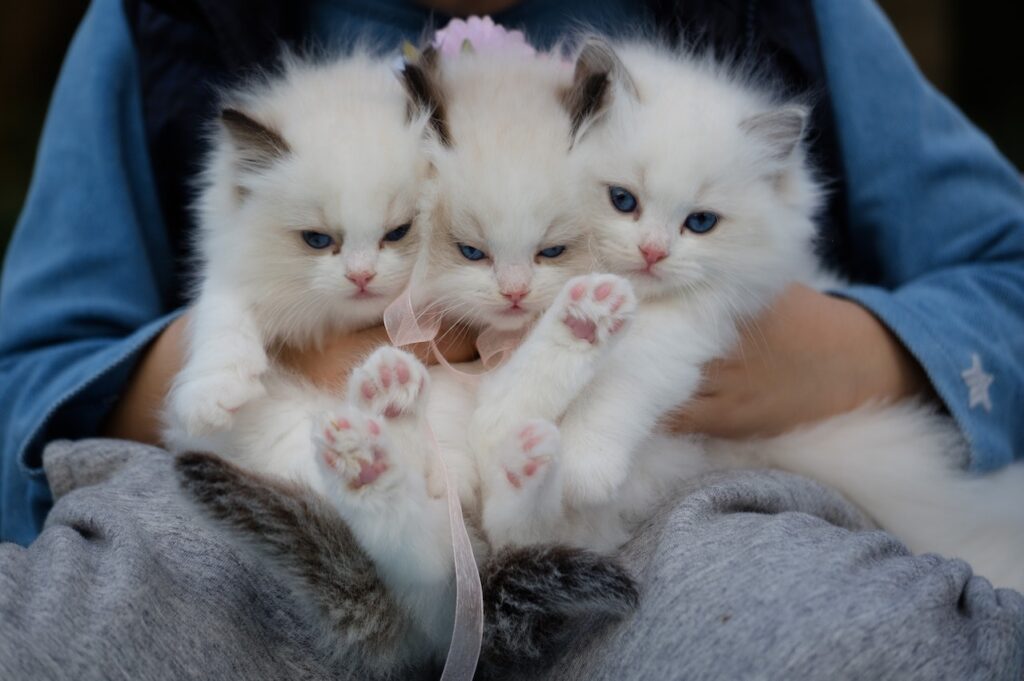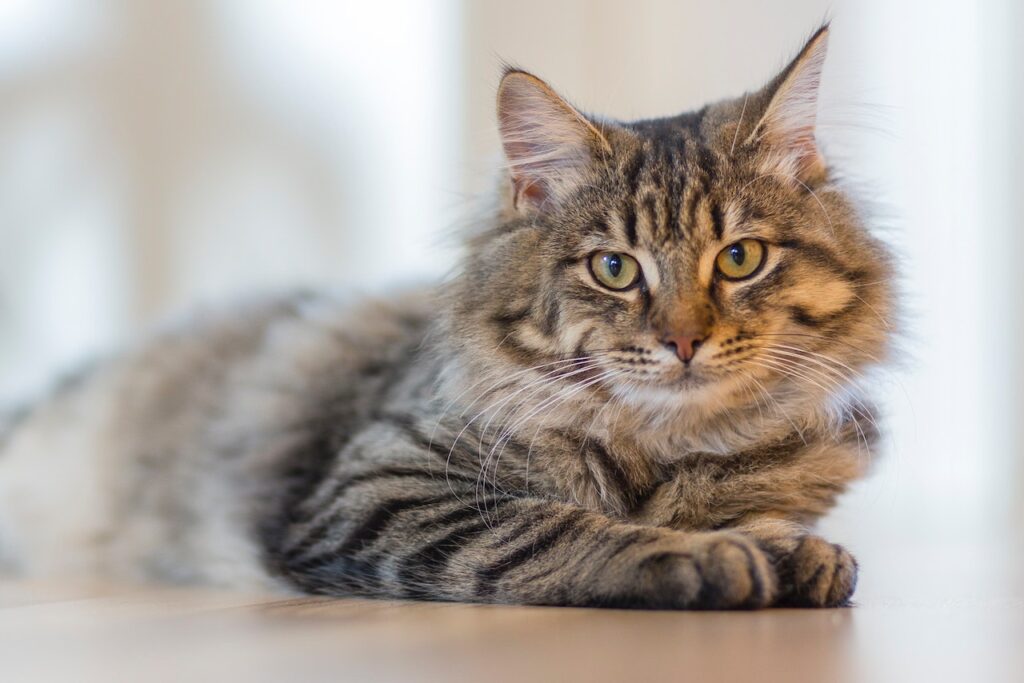Everyone who owns a pet likes to believe that their animals love us as much as we do, but is this the case, and do cats love their owners? It’s well known that dogs adore their owners, as evidenced by the dog who visits his master’s grave even though his owner died many years prior. But can the same be said for cats? Let’s dig a little deeper into this issue and examine the available scientific research on the question, “Do cats love their owners?” We will also investigate the conclusions reached by experts in cat and animal behavior.
Table of Contents
Related :Can cats eat cheese? Is cheese good for cats? 3 kinds of cheese that cats can eat

Between cats and dogs, there are some key differences.
First of all, although we know a lot about dogs, we don’t know that much about cats and their behavior. Cats look at us very differently than dogs do. A dog belongs to a pack, whereas cats are typically solitary creatures that can coexist both alone and in large groups.
To find food, a dog must rely on the other members of the pack. For the pack to function, especially when hunting, there must be a bond between the members. A cat, on the other hand, will instinctively hunt on its own if the need arises, and a cat will wash and groom itself, whereas a dog needs its owner to do that. As an alternative, a pet dog depends on its owner to provide food for him.
So do cats love their owners? Important research conclusions
These points are extremely important when determining whether or not your cat loves you because studying animal behavior and conducting research can reveal things about them that we may not have previously known. Despite this, recent research on cats and observations by cat behaviorists seem to suggest that cats do not genuinely love humans the way dogs do. Furthermore, it was argued that cats do not require humans for survival, but despite this, even independent cats tend to stay with their owners, indicating that there must be some sort of bond between them.
According to a study done at the University of Lincoln, cats are much more independent than dogs because they don’t exhibit any signs of separation anxiety when their owners leave the house or room. They make great companions for people who work because they appear to feel at ease when left alone for a while, in contrast to dogs, who may whine or long for their owner until he gets home. Normally, if a pet is attached to its owner, one would anticipate that the pet would exhibit some signs of distress when the owner is not present, but cats didn’t behave in this way.
Comparing owners’ conclusions
In certain situations, such as when a cat is scared, he may hide under a bed or on top of a cabinet rather than run to its owner; many owners can reach the same conclusion for themselves. Having said that, many owners do establish a bond with their cat; this bond, which might be interpreted as a form of love or affection, will unavoidably develop over time. Even though research indicates cats do not require humans if, given the choice, our cats would rather stay than leave.
The behavior of cats has also been observed during observation and research by various entities, and it has been found that what cats do with humans, they also do with their mothers or other cats. For instance, cats purr while rubbing up against your legs, waving their tail in the air, or licking. Since they do not do these things to cats that are inferior to them, they may view us as either another cat or a cat that is superior to them. Your cat may have given you the kneading motion with its paws; this is how kittens stimulate their mother’s milk supply.

Do cats feel different emotions toward us than love?
Cats simply treat us like they treat other cats, according to the facts, but there may be much more to it than that. Science is based on facts. The research that has been conducted thus far has only been the tip of the iceberg, so to speak, and much more work needs to be done to fully understand cats.
We also know that cats, like all animals, experience pain when they are hurt and exhibit illness in their behavior, so perhaps they also experience other emotions like love. Did your cat miss you, too, if they greet you at the door with loud purrs when you get home from work? Maybe they’re just saying hello? Do these indicate that your cat loves you?
Read more : Can Cats Eat Rice?
Twenty different cats were used in the study, along with their owners and strangers, in an unfamiliar environment, and it was observed how the cats responded when their owners left the room. This was done to see if the cat displayed any signs of anxiety or distress when the owner was not around. The cats’ increased vocalization when the owner left the room, though, raised the possibility that cats have alternative ways of expressing their missing you.
Does my cat love me?
Your cat probably loves you if you are its owner. Your relationship with your cat has probably grown to the point where they are emotionally attached to you and aware of you on an instinctual level. If you’re not the cat’s owner, however, the feline is probably not particularly attached to you. The strongest affection for their owners is typically displayed by cats!
How do cats express their love?
Cats frequently exhibit affection in a few specific ways. The first one has a happy cat expression and an upright tail. They might even wag their tails at you as they say “hello” or brush up against you. If that occurs, you will have a cat that is affectionate toward you. Next is the universally recognized signal of purring!
When a cat loves someone, they will purr together. If your feline friend is purring while you’re sitting next to them and petting their fur, they’re not just telling you that they want you to keep going. Instead, they’re expressing their love for you and their desire for you to continue. Eye contact is another indication.
Eye contact is a symbol of love for cats. If your cat is constantly gazing at you, it probably loves you because cats only make eye contact with people they like. And lastly, cats are very clean. They usually lick themselves as part of their routine. They are in love with you if they try to lick you. They’re attempting to be kind to you and express their love for you. They also want to mix scents as a sign of their affection!
Do cats know their owners love them?
We are unsure. There hasn’t been any conclusive scientific investigation into this issue. Most cat psychologists, however, believe that cats are aware of this because they wouldn’t love someone they didn’t believe to be in love with them. In other words, the cat returns your love when you express it. It’s not as if the cat found you, began to show you affection, and you then gave it back. It is reasonable to assume that cats are aware of their owners’ love for them.
Final thought
Finally, even though research indicates that there isn’t any proof that cats can love us in the same way that we do, that doesn’t mean they can’t. Is it an ingrained instinct or habit for us as humans to still hug and kiss our family members when we visit them, as well as our parents, or hug friends we haven’t seen in a while? Or are we expressing love? What do you think? It is ultimately up to you to decide whether you think your cat loves you back or not, and many cat owners will answer “yes” without hesitation.
References
https://www.petsmont.com/blogs/pets/do-cats-love-their-owner-here-is-what-we-know
https://scooby-dooo.com/